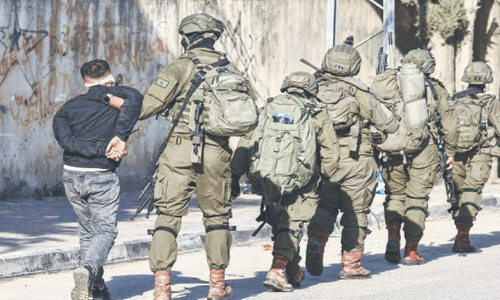A DARK empty room and the constant sound of bombardment are amongst the most prominent memories Kabir Hussain carries of his six-month stay in Al Hudaydah, Yemen.
The chief officer aboard an ill-fated cargo ship, MV Jouya 8, has finally reached his home in Karachi.
At his home across from the Airport Road, there is no family other than his wife, Kaneez Fatima, and their three teenage children. Kabir, visibly nervous, begins to narrate how he ended up in war-torn Yemen.
“On Nov 9 last year, I and seven other crew members set out for a city in the south of Iran called Bushehr [or Bushire]. Iran was the flag-bearer of the cargo and as part of the contract we had to reach Iran and then a port in Egypt. In the middle of the journey, the company communicated to Captain Aneesur Rehman that the cargo agreement had been cancelled,” he says. “We were asked to return to Iran.”
On Dec 4, the crew members of MV Jouya 8 made their way to Yemen since fresh water in the ship was depleting and the engine was heating up. Kabir was asked by the captain to keep the anchor ready.
“We were four nautical miles away from the port,” he explains. “I reached the forward station and began opening the anchor. The captain asked me to wait for further orders as he wanted to go 2.5 nautical miles more before anchoring. At 5.55pm, something hit the ship. It halted and started rocking. This was followed by a missile attack. The ship began to sink soon after.”
Kabir adds that one of the crew members, sailor Sohail Ahmed, “was the only one I saw. He was bleeding profusely and was slumped down.”
Since the ship was sinking, Kabir knew he had barely a minute or two to jump off the vessel. “I couldn’t see any other crew member apart from Sohail, who earlier didn’t let me approach him and who was, by now, slumped even further. I jumped and swam 50 to 60 metres as a whirlpool formed around the sinking ship. When the ship had gone down totally, I grabbed a cargo pallet floating nearby and reached the area where the ship had sunk, to see if anyone survived,” he explains. “I saw Sohail floating nearby and caught him up, thinking that he’d probably survive,” he muses. “At the time, I was four nautical miles away from the shore.”
Kabir’s right hand was cut open and he tells me that his head and legs were full of small pellets. “I realised I was bleeding so I kept my safety shoes on, even though they are heavy, in order to not attract a shark,” he says.
As it began to get dark, Kabir saw a flicker of light that continued to get closer. “I cried for help and soon, a boat came past. By then I was finding it difficult to keep Sohail beside me as he kept drifting away,” he adds.
The men who rescued Kabir wore camouflage uniform and were armed. On reaching an ambulance and traversing the “severely bombarded lanes”, Kabir says he was very fearful. “The hospital was full of victims of the bombing,” he recalls. “People kept coming in with severed limbs. I asked the doctors whether Sohail had survived and was told that he might. The truth was that he had died and they didn’t tell me as I was in shock.”
On Dec 6, Kabir was moved to Hudaydah for further surveillance. “I was in a big, dark room with an attached toilet, where I spent six months,” he says. By that time, a statement from Saudi Arabia claimed that the attacked cargo ship had been carrying weapons and missiles for Houthi militias with the help of Iran. In a statement on Dec 7, Iran refuted the claim.
In the meantime, a rescue operation conducted by Yemeni authorities ended with the recovery of six crew members of MV Jouya 8, who were taken to a military hospital in Hudaydah.
In February, Kabir was informed that the Red Cross, in collaboration with the International Organisation for Migrants, was looking into his case. Amongst the items recovered from the debris of the ship were some of Kabir’s passports in a file. “My two old passports had survived, but the current one did not,” he says. “That information was sent to Riyadh for verification and then to Pakistan. On that basis, I was asked to get to Djibouti via ferry, where I stayed for eight days. From there I was sent to Riyadh, then Jeddah, and then Istanbul. And I finally landed in Karachi on June 3 at 5am,” he recounts with a sigh.
His wife, Kaneez Fatima, complains that “no one came to speak to us or to ask if we are doing okay. I just received a month’s salary after he went ‘missing”.
Kabir seems to be at peace with himself. “I don’t want to blame anyone. My only appeal right now is to the government to please get back the bodies of the six crew members who are still at the military hospital in Yemen.”
Published in Dawn, June 6th, 2017


































